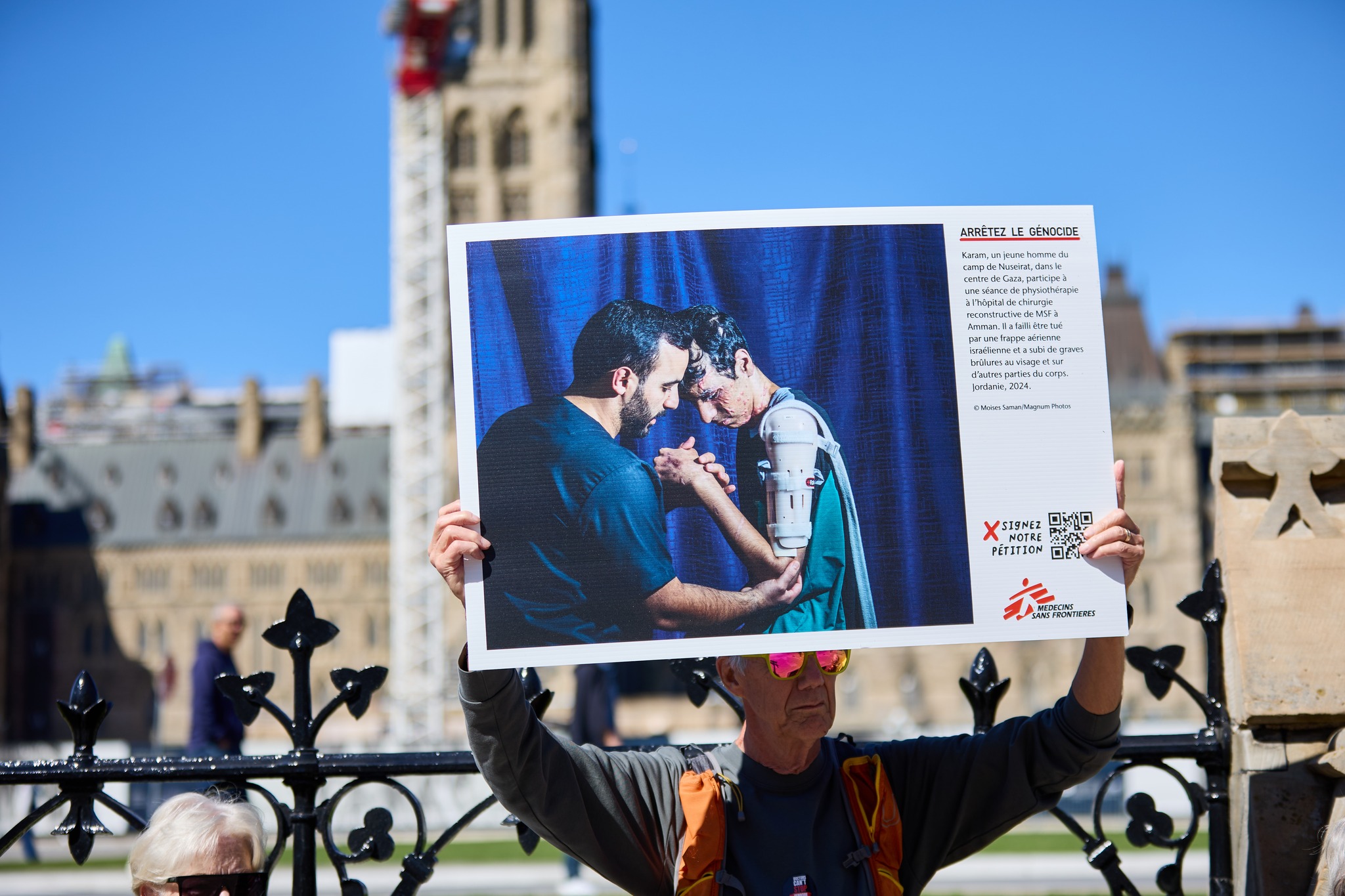Canadian aid orgs prepare as UN outlines 60-day plan for help in Gaza
Why It Matters
For two years, Canadian aid organizations have struggled to get help to starving and injured Palestinians, as most borders were shuttered to international help. While the ceasefire is on, food, medicine and supplies must flow unimpeded into the region.

Canadian aid organizations say they are ready and waiting to help deliver needed food, medicine and supplies to Palestinians after a ceasefire was called in Gaza earlier this week..
“The coming days are critical. I urge the parties to hold to their commitments,” said Mirjana Spojaric, president of the International Committee of the Red Cross.
“The ceasefire must hold. Lives depend on it.”
ICRC has teams in Israel, Gaza and the West Bank that Spoljaric said will support the ceasefire implementation by helping to return hostages and human remains to their families.
The Humanitarian Coalition echoed the ICRC’s comments, saying it will deliver “lifesaving food, water, emergency health services, psychosocial support, shelter and protection services.
“Despite the extremely challenging humanitarian and security situation over the past two years, our members have been actively responding to this crisis — many of them have been addressing humanitarian needs in Gaza for decades,” the coalition said in a statement Thursday.
Oxfam Canada, meanwhile, said it is “currently providing life-saving assistance to families in Gaza amid extremely difficult conditions by providing food vouchers, trucking clean water to communities in both the North and South, supporting the operation of water wells, rehabilitating water networks, and promoting hygiene.
“With a ceasefire and the lifting of the siege, Oxfam stands ready to rapidly scale up its humanitarian response,” they added.
Humanity and Inclusion have a more complex situation.
“Since the collapse of the previous ceasefire in March, HI has not received authorization from Israeli authorities to bring additional supplies into Gaza,” said spokesperson Jahanzeb Hussain.
“Israel has also introduced new registration requirements for international NGOs—including HI—that would compel us to share sensitive personal information about our staff, which we cannot accept.
“The current ceasefire proposal states that the United Nations will be permitted to bring aid into Gaza starting next week. We will need to wait and see what this means in practical terms for HI and our ability to deliver more assistance.”
Still, the organization managed to help hundreds of people in Gaza with rehabilitation, fitting some with prosthetics and orthotics and educating people about hidden mine risk, said Hussain.
The 60-day plan
The United Nations outlined its 60-day plan once the Rafah border crossing between Egypt and Gaza is reopened.
“So our plan – detailed and tested – is in place,” said Tom Fletcher, the UN’s undersecretary-general for humanitarian affairs, on Thursday.
“Our supplies, 170,000 metric tons – food, medicine and other supplies – are in place. And our team – courageous and expert and determined – are in place.”
The plan includes reaching the 2.1 million people who need food and the 500,000 who need nutrition, said Fletcher.
“Famine must be reverted in areas where it has taken hold and prevented in others. So we will be distributing in-kind rations,” said Fletcher.
“We’ll be supporting bakeries, community kitchens. We’ll be supporting herders and fishers in restoring their livelihoods. And we will be providing cash for 200,000 families to cover basic food needs.”
Over the next two months, they plan to launch nutrition screening, deliver essential medicine and supplies, re-establish disease surveillance, and deploy emergency health teams.
Fletcher said the UN will also help restore the water grid by providing fuel, generators, chemicals, and supplies, repairing sewage leaks and pumping stations, and installing latrines where needed.
Shelter supplies, including tents and tarps, will also flow, said Fletcher, focusing on larger and more vulnerable families. Education services will also be ramped up.
However, to do this effectively, said Fletcher, the UN will need unimpeded access to the area, and cash.
“At the moment, only 28 per cent of the US$4 billion needed for the 2025 Flash Appeal for all these areas for the OPT [Occupied Palestinian Territory] has been funded – only 28 per cent,” he said.
“Now is the time to make that generosity count … to respond to this plan at the scale required and with the level of kindness and generosity that, frankly, the world owes right now.”
Aid delivery methods have not been formally worked out. Still, it is expected to operate much the same way as it did during the January ceasefire, which allowed 600 trucks to enter the area under the eyes of the Palestinian Authority and the European Union.
“We have a close dialogue with the Israeli authorities, with COGAT, who oversee much of this work, and that dialogue has been ongoing even when we’ve gone through these very difficult months and when we’ve disagreed on many things,” said Fletcher.
“During the 42-day ceasefire back at the beginning of the year, [the UN worked] to deliver aid at massive scale: 500, 600 trucks going in every day. So we have the muscle memory between us all.”
Asked if the UN expects resistance to the plan, Fletcher affirmed.
“I think it’s no secret, I think there are hardliners on both sides of the argument who have sought in the past to delay or impede efforts to get the hostages out, to get the aid in,” he told reporters.
-With files from Abigail Turner and Sharlene Gandhi

